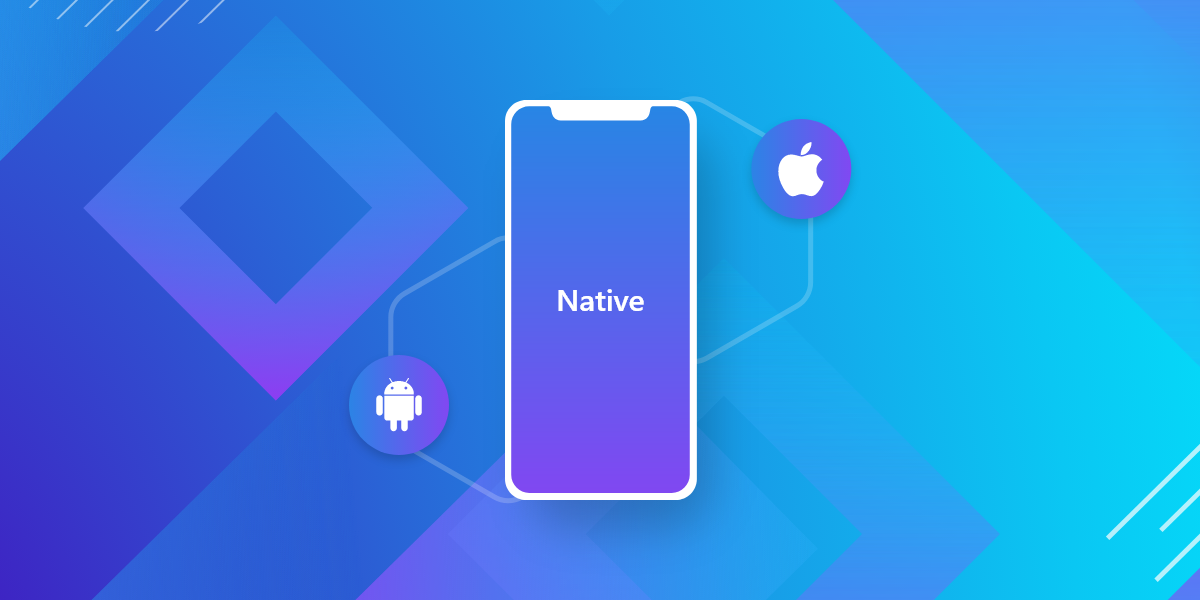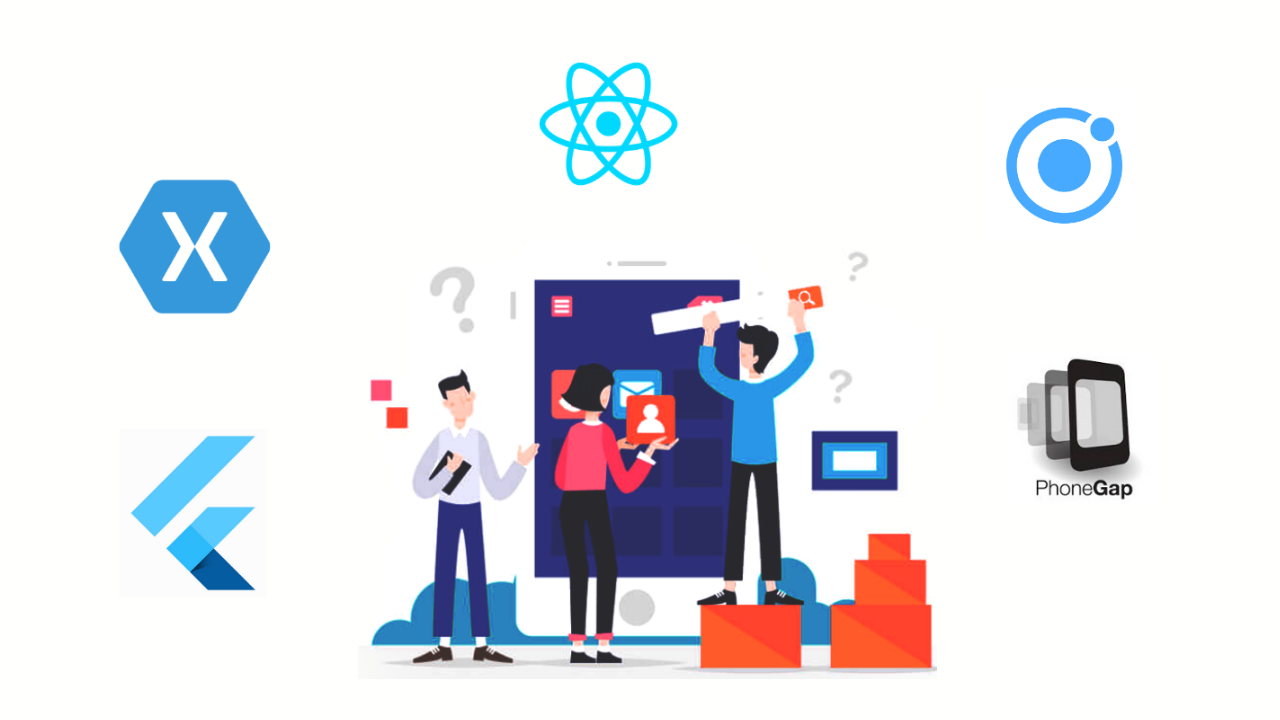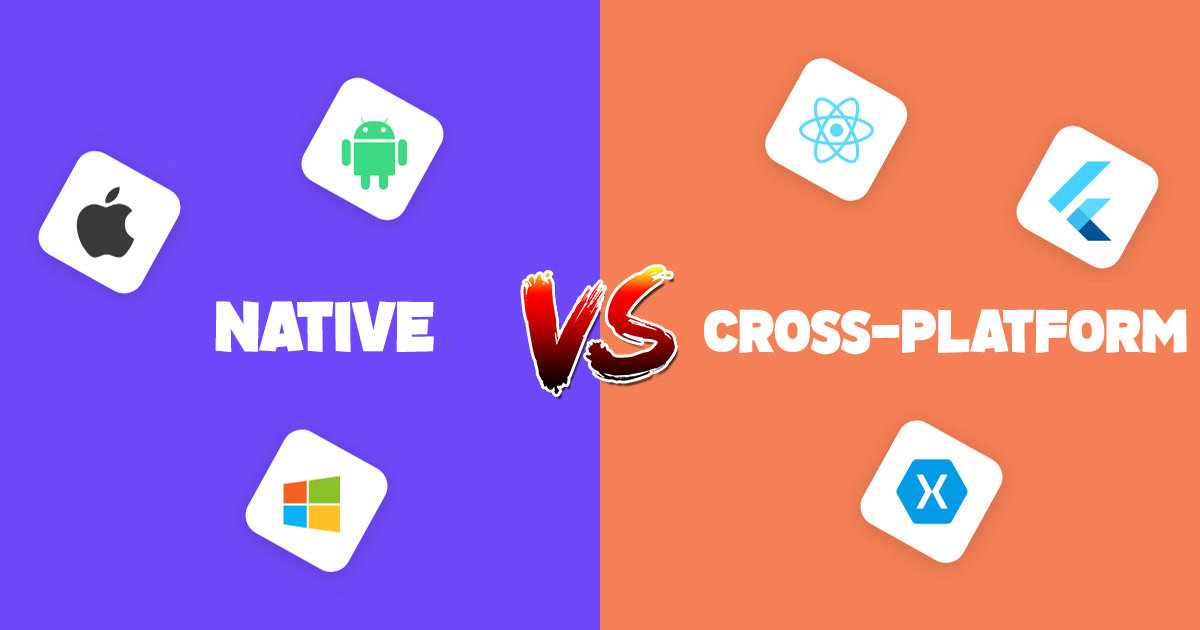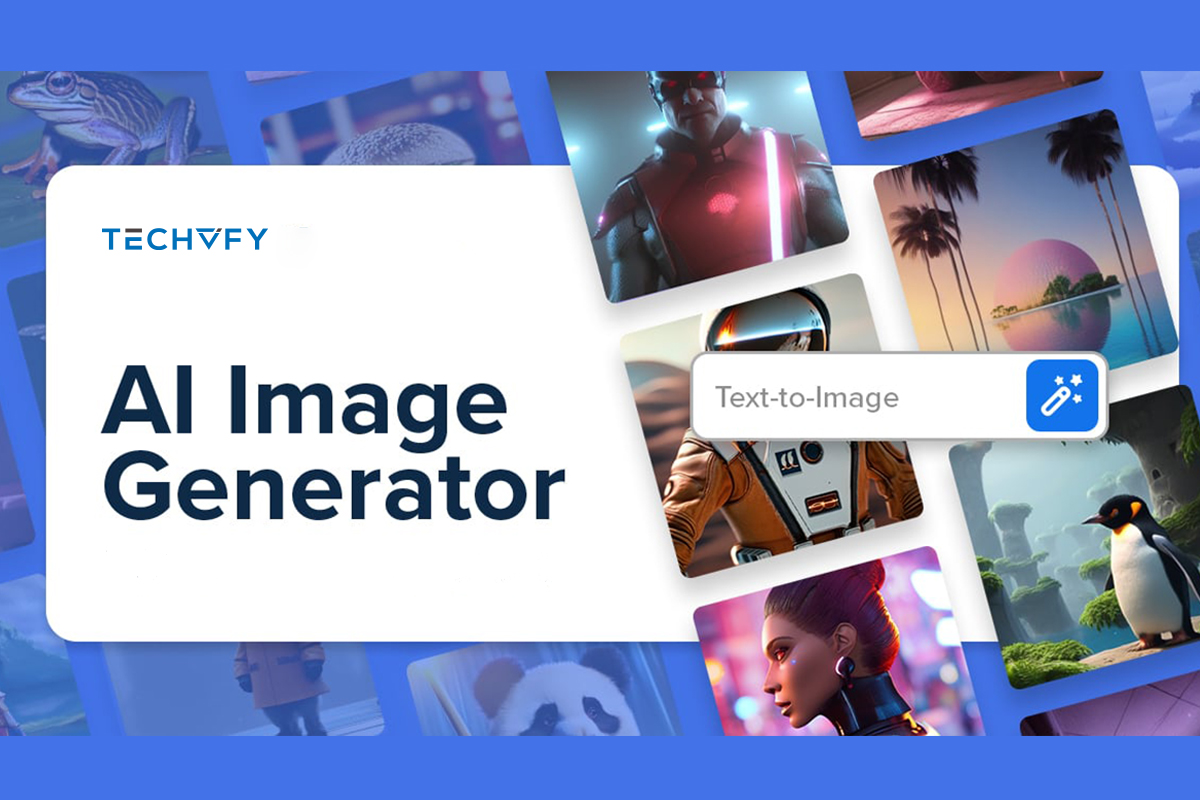Native vs Cross Platform Apps Development: A Comprehensive Comparison
- David Ho
- 0 Comments
In the ever-evolving landscape of mobile app development, choosing the right path can be a critical decision for businesses and developers. The debate between native vs cross-platform development has been long-standing, each offering unique advantages and challenges. This comprehensive comparison will explore their definitions, benefits, challenges, and when to choose one over the other. Whether you seek top-notch performance, cost efficiency, or a balance, we will equip you with the knowledge to chart your course in the app development landscape.
I. Understanding Native App Development
1. Native App Development Definition
Native app development involves creating mobile applications designed for a particular operating system or platform. Developers craft these apps using platform-specific programming languages and tools. For instance, Android apps are primarily built with Java or Kotlin, whereas iOS apps use Objective-C and Swift.
Native App Development
This approach offers superior performance, customization, and user experiences. It is essential for complex apps like inventory management or 3D gaming, as it leverages platform-specific capabilities for optimal performance and functionality.
2. Benefits of Native App Development
Top-Notch Performance
- Fast and responsive: Native apps are optimized for a specific platform, allowing rapid performance, smooth animations, and quick load times.
- Superior graphics: Native apps render high-quality graphics and animations, making them suitable for resource-intensive tasks like 3D gaming or multimedia applications.
Optimal User Experience
- Intuitive and consistent: Native apps follow platform-specific design guidelines, ensuring a seamless and intuitive user experience.
- Smooth navigation: Gestures and interactions are finely tuned to the platform for user-friendly navigation.
Accessibility to Hardware Features
- Utilizing device capabilities: Native apps can leverage hardware features like GPS, cameras, and sensors, enabling functionalities such as location-based services and augmented reality.
- Enhanced performance: Direct access to device resources ensures optimal performance for tasks like image processing or real-time data analysis.
Offline Functionality
- Reliable offline access: Native apps support offline mode, allowing users to access critical features without an internet connection.
- Seamless synchronization: Data syncs efficiently when the app reconnects to the internet, ensuring smooth transitions between online and offline states.
Security
- Strong data protection: Native apps benefit from platform security features, providing robust encryption and user trust.
- Reduced vulnerability: Native apps are less susceptible to certain web-based security threats.
3. Challenges of Native App Development
Higher Development Costs
- Increased investment: Developing separate codebases for multiple platforms requires more resources, making it costly for small businesses or startups.
- Skilled developers required: Hiring developers proficient in platform-specific languages adds to the cost.
Longer Time to Market
- Longer development timeline: Building native apps for different platforms extends development time, delaying release.
- Competitive disadvantage: Delayed entry into the market may allow competitors to launch faster with cross-platform solutions.
No Code Reusability
- Duplicated effort: Native development lacks code reusability, requiring duplicate features for different platforms.
- Maintenance complexities: Managing separate codebases can lead to challenges in keeping versions consistent and up to date.
II. Exploring Cross-Platform App Development
1. Cross-Platform App Development Definition
Cross-platform app development allows developers to use reusable web-based code across different platforms using specialized frameworks. These frameworks provide tools and components, enabling code to be written once and deployed anywhere. While traditionally cross-platform apps lacked performance compared to native apps, they have improved significantly, making them a preferred choice for businesses seeking cost efficiency and wider reach.
Cross-Platform App Development
2. Benefits of Cross-Platform App Development
Effective Development Cost
- Cost efficiency: Developers can reuse a significant portion of their codebase, reducing development costs.
- Reduced resource allocation: Fewer developers are needed since the same team can work on both iOS and Android versions simultaneously.
Shorter Time to Market
- Accelerated development: Cross-platform frameworks expedite app development with code sharing.
- Faster market entry: The ability to target multiple platforms simultaneously shortens the time to reach users.
3. Challenges of Cross-Platform App Development
Performance
- Performance trade-offs: Cross-platform apps may face slight performance challenges compared to native apps.
- Optimization efforts: Developers must optimize code and use platform-specific APIs to mitigate performance issues.
Native Feature Limitations
- Limited access: Cross-platform frameworks may not provide immediate access to all native device features.
- Workarounds: Developers may need third-party plugins for some hardware or software features.
III. Comparing the Difference Between Native and Cross-Platform Development
| Aspect | Native Development | Cross-Platform Development |
|---|---|---|
| Performance | Excellent performance, ideal for resource-intensive apps. | Good performance but may face slight trade-offs. |
| Development Costs | Higher costs due to platform-specific development. | Lower costs due to shared codebase. |
| Time-to-Market | Longer development time as separate apps are built. | Faster deployment with shared code. |
IV. Native vs Cross Platform Development: What’s Better?
The choice between native and cross-platform development depends on your project’s needs. Choose native for performance and customization, and cross-platform for cost efficiency and fast development.
Native vs Cross-Platform Development
Conclusion
Both native and cross-platform development have their merits. If you seek expert guidance, TECHVIFY Software offers consulting services to help you choose the best approach for your app development needs.








